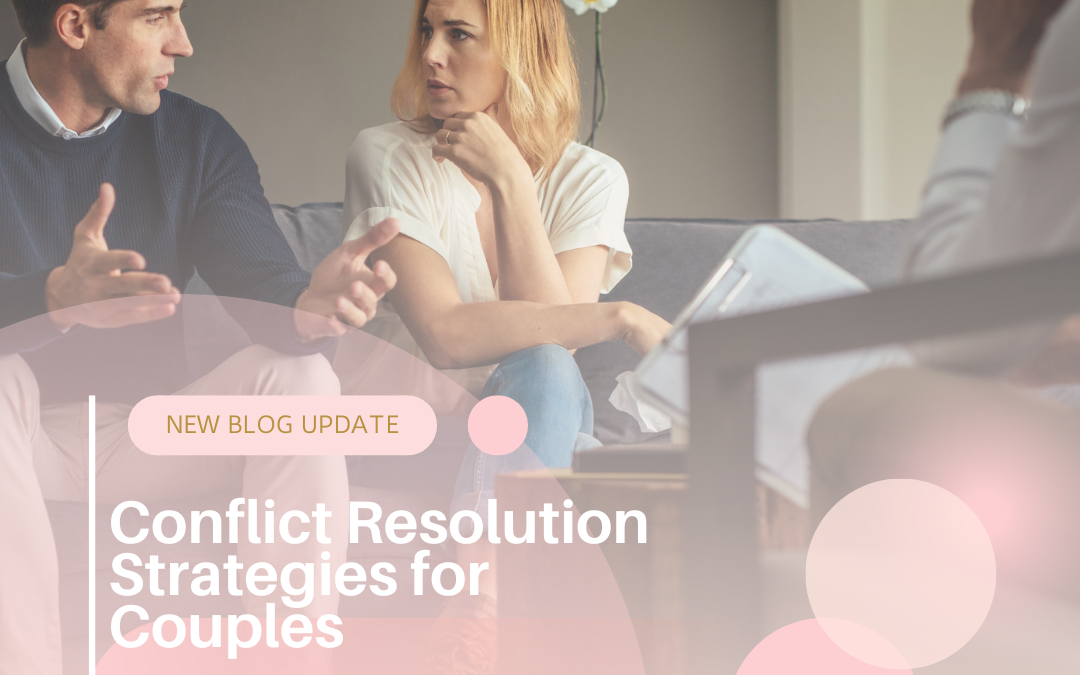Conflict is a natural part of any relationship. Disagreements can arise from differences in perspectives, values, or communication styles. However, conflict doesn’t have to weaken your bond—it can actually strengthen it if handled constructively. The key is learning how to navigate disagreements with respect, understanding, and collaboration. Here are some effective conflict resolution strategies for couples:
1. Create a Safe Space for Dialogue
Conflicts often escalate when emotions run high or when one or both partners feel attacked. Establishing a safe and respectful environment is essential for productive discussions.
How to Create a Safe Space:
- Choose the right time and place: Avoid discussing serious issues when you’re tired, stressed, or rushed.
- Set ground rules: Agree to avoid name-calling, yelling, or interrupting.
- Validate each other’s feelings: Show empathy by acknowledging emotions, even if you don’t fully agree.
When both partners feel heard and respected, they’re more likely to work together toward a resolution.
2. Focus on the Issue, Not the Person
It’s easy to get caught up in pointing fingers or assigning blame during an argument, but this approach can damage trust and intimacy. Instead, focus on the specific issue at hand and approach it as a team.
Tips to Stay Issue-Focused:
- Use “I” statements: Say, “I feel hurt when plans change without notice,” rather than, “You never stick to the plan.”
- Avoid bringing up past conflicts: Stick to the current topic to prevent the conversation from spiraling.
- Frame the conflict as a shared challenge: Use language like “How can we solve this together?”
This mindset shifts the focus from winning the argument to strengthening the relationship.
3. Take Breaks When Needed
When emotions are running high, it’s easy for conversations to become unproductive. Taking a pause allows both partners to cool down, reflect, and return to the discussion with a clearer perspective.
How to Take Breaks Effectively:
- Agree on a pause: Say, “I think we both need a moment to calm down before continuing this conversation.”
- Set a time to revisit: Avoid leaving issues unresolved by agreeing to resume the discussion after the break.
- Use the break wisely: Practice self-soothing techniques, such as deep breathing, journaling, or taking a walk.
Taking a break isn’t about avoiding the issue—it’s about creating the space to handle it more effectively.
4. Seek to Understand, Not Just to Be Right
In the heat of a conflict, it’s tempting to focus on proving your point. However, resolution comes from understanding each other’s perspectives and finding common ground.
Ways to Foster Understanding:
- Practice active listening: Restate what your partner says to ensure you understand their viewpoint.
- Ask clarifying questions: “Can you help me understand why this is so important to you?”
- Acknowledge your partner’s feelings: Even if you disagree, validate their experience by saying, “I can see how that upset you.”
Understanding doesn’t mean you have to agree on everything—it means showing respect and empathy for your partner’s perspective.
5. Compromise and Collaborate
Conflict resolution isn’t about one person getting their way; it’s about finding solutions that work for both partners. Compromise requires flexibility, creativity, and a willingness to prioritize the relationship over individual preferences.
Steps to Find Common Ground:
- Brainstorm solutions together: List possible ways to address the issue and evaluate them as a team.
- Be flexible: Identify which aspects of the conflict are most important to each of you and where you’re willing to give.
- Focus on shared goals: Remember that you’re working toward a stronger relationship, not against each other.
When both partners feel they’ve contributed to the solution, it reinforces trust and cooperation.
6. Know When to Seek Help
Sometimes, conflicts become too complex or emotionally charged to resolve on your own. Seeking the guidance of a couples therapist can provide fresh perspectives and tools to navigate difficult issues.
Therapists can help identify patterns, improve communication skills, and foster deeper understanding, empowering you to move forward together.
Final Thoughts
Conflict is an opportunity to grow closer when approached with care and intention. By creating a safe space, focusing on understanding, and collaborating on solutions, you can turn disagreements into meaningful conversations that strengthen your bond.
Remember, no relationship is perfect, but learning to resolve conflict with respect and love is a skill that will serve you both for years to come.
If you’re struggling to navigate conflicts in your relationship, don’t hesitate to reach out to a therapist for support. Healthy conflict resolution is within your reach—and it starts with a commitment to grow together.


Recent Comments